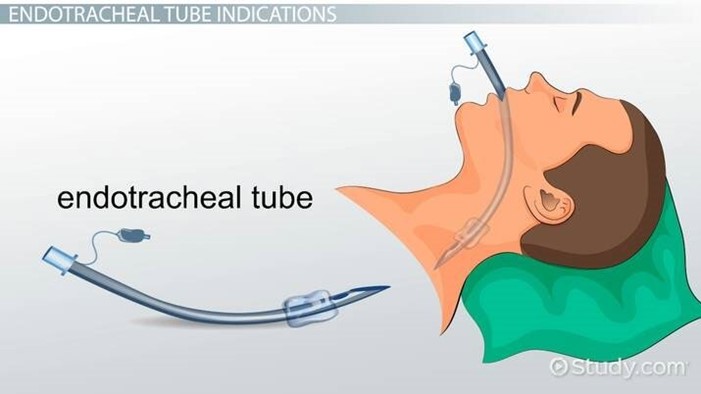A nurse is caring for a client who is receiving mechanical ventilation via an endotracheal tube. Which of the following actions should the nurse take?
Monitor the client's vital signs every 8 hours
Reposition the endotracheal tube every 12 hours.
Place the client in a supine position.
Perform oral care every 2 hours
The Correct Answer is D
Performing oral care every 2 hours is an important nursing intervention for a client receiving mechanical ventilation via an endotracheal tube. This helps to reduce the risk of ventilator-associated pneumonia.
a) Monitoring the client's vital signs is important, but it should be done more frequently than every 8 hours.
b) Repositioning the endotracheal tube is not necessary unless there is a specific indication.
c) Placing the client in a supine position is not recommended as it increases the risk of aspiration.

Nursing Test Bank
Naxlex Comprehensive Predictor Exams
Related Questions
Correct Answer is B
Explanation
The client has state-sponsored health insurance: While information about the client's health insurance coverage is important for billing and financial purposes, it may not be directly relevant to the discussion in an interprofessional team meeting unless it specifically impacts the client's access to healthcare resources or affects decision-making regarding their care plan.
The reason for including this information is that difficulty ambulating can impact the client's overall mobility and functional status. It can have implications for their ability to perform activities of daily living, increase the risk of falls, and require additional interventions or resources. By sharing this information with the interprofessional team, appropriate strategies and interventions can be discussed and implemented to address the client's mobility issues.
The client's next dressing change is scheduled in 4 hours: The timing of the client's dressing change may be important for nursing documentation and scheduling purposes. However, it may not be a significant focus of discussion in an interprofessional team meeting unless there are specific concerns or issues related to the dressing change that require collaboration and coordination among the healthcare team.
The client's vital signs are checked every 8 hours: The frequency of vital sign checks is an important aspect of nursing care and monitoring. However, unless there are specific concerns or deviations from normal vital signs that need to be discussed, it may not be the primary information to include in an interprofessional team meeting. The focus of the meeting is typically on broader aspects of the client's condition, care plan, and multidisciplinary interventions.
Correct Answer is ["A","B","E"]
Explanation
Compartment syndrome is a condition characterized by increased pressure within a closed anatomical space, such as a compartment in the leg. This increased pressure can compromise blood flow and nerve function. When assessing a client with a long-leg cast who reports severe pain, the nurse should be vigilant for signs and symptoms of compartment syndrome.
Option a is a correct answer because pallor (paleness) in the exposed portion of the left foot may indicate compromised blood flow due to increased pressure within the compartment.
Option b is a correct answer because the inability to move the left foot suggests impaired nerve function,
which can be a sign of compartment syndrome.
Option c is not a correct answer. Increased warmth is not typically associated with compartment syndrome; instead, it may suggest inflammation or infection.
Option d is not a correct answer. Ecchymosis (bruising) is not typically associated with compartment syndrome, as it is more commonly observed in cases of injury or trauma.
Option e is a correct answer because paresthesia (abnormal sensations like tingling or numbness) in the left foot can indicate nerve compression and is a potential symptom of compartment syndrome.
By identifying the presence of pallor, inability to move the foot, and paresthesia, the nurse can recognize indications of compartment syndrome and take appropriate actions to address the condition promptly.
Whether you are a student looking to ace your exams or a practicing nurse seeking to enhance your expertise , our nursing education contents will empower you with the confidence and competence to make a difference in the lives of patients and become a respected leader in the healthcare field.
Visit Naxlex, invest in your future and unlock endless possibilities with our unparalleled nursing education contents today
Report Wrong Answer on the Current Question
Do you disagree with the answer? If yes, what is your expected answer? Explain.
Kindly be descriptive with the issue you are facing.
